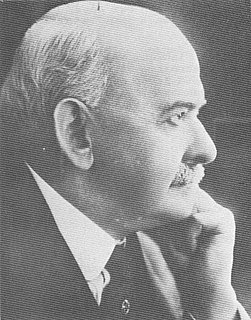A Quote by R. C. Sproul
God did not die. The God who took on Himself a human nature died in His humanity, but the deity did not perish on the cross.
Related Quotes
Nowadays this is the way everyone loves himself; people wish to live with God in consolations and repose, in wealth and power, and to share the fruition of his glory. We all indeed wish to be God with God, but God knows there are few of us who want to live as men with his Humanity, or want to carry his cross with him, or want to hang on the cross with him and pay humanity's debt to the full.
Your attitude should be the same as that of Christ Jesus: Who being in very nature God, did not consider equality with God something to be grapsed, but made himself nothing, taking the very nature of a servant, being made in human likeness. And being found in appearnace as a man, he humbled himself and becamse obedient to death-even death on a cross!
Suppose, however, that God did give this law to the Jews, and did tell them that whenever a man preached a heresy, or proposed to worship any other God that they should kill him; and suppose that afterward this same God took upon himself flesh, and came to this very chosen people and taught a different religion, and that thereupon the Jews crucified him; I ask you, did he not reap exactly what he had sown? What right would this god have to complain of a crucifixion suffered in accordance with his own command?
When Jesus died on the cross the mercy of God did not become any greater. It could not become any greater, for it was already infinite. We get the odd notion that God is showing mercy because Jesus died. No--Jesus died because God is showing mercy. It was the mercy of God that gave us Calvary, not Calvary that gave us mercy. If God had not been merciful there would have been no incarnation, no babe in the manger, no man on a cross and no open tomb.
The only cross in all of history that was turned into an altar was the cross on which Jesus Christ died. It was a Roman cross. They nailed Him on it, and God, in His majesty and mystery, turned it into an altar. The Lamb who was dying in the mystery and wonder of God was turned into the Priest who offered Himself. No one else was a worthy offering.
At this day . . . the earth sustains on her bosom many monster minds, minds which are not afraid to employ the seed of Deity deposited in human nature as a means of suppressing the name of God. Can anything be more detestable than this madness in man, who, finding God a hundred times both in his body and his soul, makes his excellence in this respect a pretext for denying that there is a God? He will not say that chance has made him different from the brutes; . . . but, substituting Nature as the architect of the universe, he suppresses the name of God.
If God wishes to be born as man and to unite mankind in the fellowship of the Holy Ghost, He suffers the terrible torment of having to bear the world in its reality. It is a crux; indeed, He Himself is His own cross. The world is God's suffering, and every individual human being who wishes even to approach his own wholeness knows very well that this means bearing his own cross. But the eternal promise for him who bears his own cross is the Paraclete.
The Son of God did not want to be seen and found in heaven. Therefore he descended from heaven into this humility and came to us in our flesh, laid himself into the womb of his mother and into the manger and went on to the cross. This was the ladder that he placed on earth so that we might ascend to God on it. This is the way you must take.
When I look at the cross, I learn to say: 'The Son of God loved me, and gave Himself for me' (Galatians 2:20). I begin to believe with Paul that if God did not spare His own Son, but gave Him up to the cross for me, then He loves me so much He will always give me only what will bring me blessing (Romans 8:32).
The Cross is not simply a lovely example of sacrificial love. Throwing your life away needlessly is not admirable — it is wrong. Jesus’ death was only a good example if it was more than an example, if it was something absolutely necessary to rescue us. And it was. Why did Jesus have to die in order to forgive us? There was a debt to be paid — God himself paid it. There was a penalty to be born — God himself bore it. Forgiveness is always a form of costly suffering.
What we see at the cross is the white-hot revelation of the character of God, of his love providing the price that holiness requires. The cross was his means of redeeming lost sinners and reconciling them to himself, but it was also a profound disclosure of his mercy. It is, in Paul’s words, an ‘inexpressible gift’ that leads us to wonder and worship, to praise and adore the God who has given himself to us in this way.
The spot where God's triumph is achieved, God's victory over sin, over lawlessness, is the cross of Calvary- the cross on which the Son of God died. In that cross and through the cross the works of the devil were destroyed, and the One who conquered him is yet to bruise the serpent's head in the final triumph when He comes again, as recorded in prophecy.




































